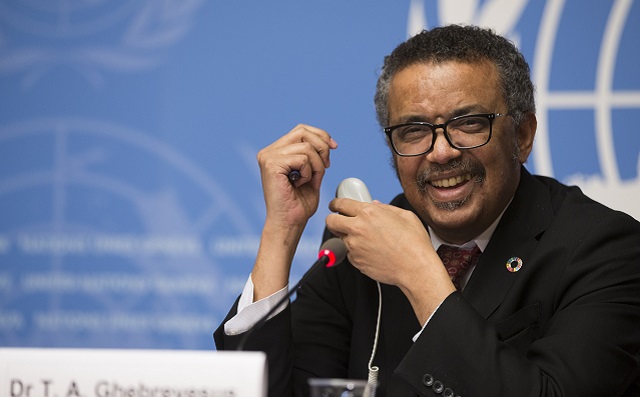
Historic move makes world better prepared for, and ready to respond to, future public health emergencies
ANALYSIS | AGENCIES | Government that are state parties to the International Health Regulations of the World Health Organisation (WHO) have inched closer to signing the world’s first agreement to strengthen global collaboration among governments to prepare for, prevent and respond to pandemics.
In the eighth meeting of the Working Group on Amendments to the International Health Regulations (WGIHR), which adjourned on April 16 in Geneva, Switzerland until May 16, State Parties to the IHR took a major step towards agreeing on the package of amendments which will be put forward to the World Health Assembly, which takes place from May 27 – June 01. Negotiations resume on the pandemic agreement are continuing until 10 May.
The amendments, proposed by IHR State Parties in the wake of the COVID-19 pandemic to strengthen the international community’s ability to detect and respond to pandemic threats, will be up for consideration and, if agreed, formal adoption.
“The International Health Regulations have been the cornerstone of global health security for decades, but the COVID-19 pandemic showed the need to strengthen them in some areas to make them fit for purpose,” said Dr Tedros Adhanom Ghebreyesus, the WHO Director-General. “Countries are grasping this historic opportunity to protect future generations from the impact of epidemics and pandemics, with a commitment to equity and solidarity.”
This eighth meeting of the Working Group on Amendments to the IHR (WGIHR) handled negotiations of the world’s first pandemic agreement alongside other amendments to the IHR.
The IHR are an instrument of international law that is legally-binding on 196 countries, including the 194 WHO Member States. They create rights and obligations for countries, including the requirement to report public health events. The Regulations also outline the criteria to determine whether or not a particular event constitutes a “public health emergency of international concern”.
The anticipated agreements and amendments aim to strengthen global collaboration among governments to prepare for, prevent and respond to pandemics. It was proposed in WGIHR8 that two separate Resolutions on the two processes be submitted to the World Health Assembly in May.
During the eighth meeting of the WGIHR, substantial progress on finalising the package of amendments was made as State Parties reached agreement in critical areas.
WGIHR Co-Chair Dr Ashley Bloomfield said: “The work to bolster our global defenses against public health emergencies and risks, through agreeing a stronger set of International Health Regulations, reflects both the risks our highly interconnected world faces today, and the recognition and readiness of countries to ensure their citizens are better protected.”
Fellow WGIHR Co-Chair, Dr Abdullah Assiri, said the proposed amendments to the IHR are readily implementable and recognize the importance of equity in ensuring effective global response.
“The COVID-19 pandemic showed the world that viruses of pandemic potential do not respect national borders,” Dr Assiri said. “Amending the International Health Regulations reflects the critical need to bolster our collective defenses against current and future public health risks so people’s health, societies and economies can be better protected, all whilst firmly respecting and adhering to the principle of national sovereignty.”
The eighth meeting of the WGHIR will resume in a two-day final session 16-17 May to continue and conclude the work of the Working Group according to its mandate from the Health Assembly
The IHR have 196 State Parties, comprising all 194 WHO Member States plus Liechtenstein and the Holy See. These Parties have led the process to amend the IHR. The Regulations have been negotiated under Article 21 of the WHO Constitution. Any amendment will come into force for all States Parties, after a set period, except for those that notify the WHO Director-General of a rejection or reservation.
 The Independent Uganda: You get the Truth we Pay the Price
The Independent Uganda: You get the Truth we Pay the Price



